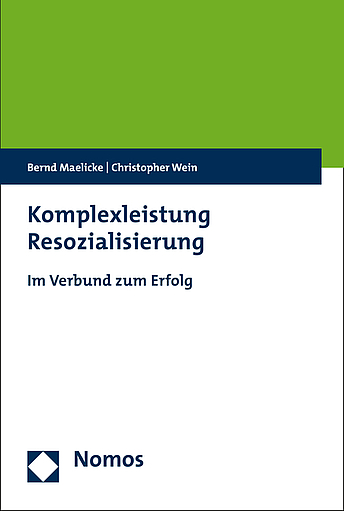Maelicke | Wein
Komplexleistung Resozialisierung
ISBN 978-3-8487-2845-9
englischThe German system of social rehabilitation, which has been left to develop without a clear aim or guidance since the 1950s, requires a fundamental overhaul. The measures and facilities currently used to reduce the chances of convicted criminals reoffending (the penal system, probation services, voluntary assistance offered by ex-offenders) no longer have the desired optimal effect. Maelicke and Wein substantiate this theory with up-to-date empirical studies from the German federal states and by making an international comparison of exemplary innovations in this field.
The general concept they outline for effective and lasting rehabilitation support is based on five components:
The authors summarise their analyses and proposals for change in the form of concrete suggestions for national laws on social rehabilitation and the protection of victims, and they develop a strategy for improving the political, legal and financial conditions in which successful social reintegration of convicted offenders can be achieved, which they consider imperative.
Das seit den 1950er-Jahren ungesteuert entwickelte System der Resozialisierung bedarf einer grundlegenden Erneuerung. Die ambulanten und stationären Maßnahmen und Hilfen zur Reduzierung des Rückfalls (Strafvollzug, Bewährungshilfe, Freie Straffälligenhilfe) erreichen nicht mehr die fachlich mögliche, optimale Wirkung. Diese These untermauern Maelicke und Wein mit aktuellen empirischen Untersuchungen aus den deutschen Bundesländern und einem internationalen Vergleich beispielhafter Innovationen.
Das vorgelegte Gesamtkonzept einer wirkungsorientierten und nachhaltigen „Komplexleistung Resozialisierung“ beruht dabei auf fünf Bausteinen:
• dem fachlichen Konzept,
• dem Case-Management als professioneller Methode der Fallsteuerung,
• dem Reso-Management als Handlungskonzept für Führungskräfte,
• einer Opferorientierung als sozial gerecht erweiterter Zielsetzung und
• einer verstärkten Forschung und Entwicklung zur Steigerung der Interventionswirksamkeit aller Akteure.
In konkreten Vorschlägen zu Resozialisierungs- und Opferschutzgesetzen auf Landesebene werden Analysen und Innovationsvorschläge zusammengefasst und eine Strategie zu einer dringend gebotenen Verbesserung der politischen, rechtlichen und finanziellen Rahmenbedingungen für eine erfolgreiche Resozialisierung entwickelt.


